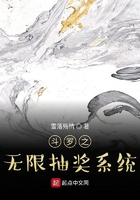I spoke for six minutes and received a standing ovation. Some of the delegates even cried. I thought that maybe I had reached some of them, that my speech might actually spur action. Now, a decade from Rio, after I' ve sat through many more conferences, I' m not sure what has been accomplished. My confidence in the people in power and in the power of all individual' s voice to reach them has been deeply shaken.
Sure, I' ve seen some improvements since Rio. In my home city of Vancouver, most people put out their recycling boxes. The grocery and cafe on Fourth Avenue is flourishing. Bikes are popular, and there are a few gas-electric hybrid cars gliding around. But as this new century begins, my twenty-something generation is becoming increasingly disconnected from the natural world. We buy our drinking water in bottles. We eat genetically modified organisms. We drive the biggest cars ever. At the same time, we are a generation aware of the world—of poverty and social imbalance, the loss of biodiversity, climate change and the consequences of globalization—but many of us feel we have inherited problems too great to do anything about.
When I was little, the world was simple. But as a young adult, I' m learning that as we have to make choices—education, career, lifestyle—life gets more and more complicated. We are beginning to feel pressure to produce and be successful. We are learning a shortsighted way of looking at the future, focusing on four-year government terms and quarterly business reports. We are taught that economic growth is progress, but we aren' t taught how to pursue a happy, healthy or sustainable way of living. And we are learning that what we wanted for our future when we were 12 was idealistic and naive.
Today I' m no longer a child, but I' m worried about what kind of environment my children will grow up in. In Johannesburg the delegates will discuss the adoption and implementation of documents by governments. Yes, important stuff. But they did that at Rio. What this meeting must really be about is responsibility—not only government responsibility but personal responsibility. We are not cleaning up our own mess. We are not facing up to the price of our lifestyles. In Canada we know we are wiping out the salmon of the West Coast, just as we wiped out cod from the East Coast, but we continue overfishing. We keep driving our SUVs in the city, even though we are starting to feel the effects of climate change—a direct result of burning too much fossil fuel.
Real environmental change depends on us. We can't wait for our leaders. We have to focus on what our own responsibilities are and how we can make the change happen.
Before graduating from college a few months ago. I worked with the Yale Student Environmental Coalition to draft a pledge for young people to sign. Called the Recognition of Responsibility, the pledge is a commitment from our generation to be accountable and a challenge to our elders to help us achieve this goal and to lead by example. It includes a list of ways to live more sustainable—simple but fundamental things like reducing household garbage, consuming less, not relying on cars so much, eating locally grown food, carrying a reusable cup and, most important, getting out into nature.
But in the 10 years since Rio, I have learned that addressing our leaders is not enough. As Gandhi said many years ago, "We must become the change we want to see."I know change is possible, because I am changing, still figuring out what I think. I am still deciding how to live my life. The challenges are great, but if we accept individual responsibility and make sustainable choices, we will rise to the challenges, and we will become part of the positive tide of change.
当你还是个孩子的时候,你很容易相信自己能够改变世界。我清楚地记得自己12岁时在里约地球峰会上对代表们讲话时的热情。我对他们说:“我不过是个孩子,可是我明白,假如将战争上的所有花费用来消除贫困和解决环境问题的话,这个世界将会变得多么美好啊。在学校里,你们教我们不要和别人打斗,要商量着办事,要尊重他人,要将我们弄脏的地方清理干净,不伤害生物,要与人分享,不贪婪。那你们为什么去做那些你们不允许我们做的事情?你们成年人口口声声地说爱我们,那我要求你们,请你们做到表里如一!”
那时我讲了整整六分钟,大家起立热烈鼓掌欢呼。有的代表甚至被感动得哭了。那一刻,我认为自己或许打动了一些人,我的演说也许真的会引发一场行动。如今,距离里约峰会已经十年了,我耐心地出席了很多其他会议,可是我不能保证有什么成果。对于当权者,对于个人说服当权者的能力,我的信心已经大大地受挫了。
确实,里约峰会结束以后,我看到了一些改变。在我的家乡温哥华,大部分人家摆出了可供再生利用物品的垃圾筒。第四大道上的食品杂货店和咖啡屋办得红红火火。自行车大受欢迎,街上还有几辆汽电两用车缓缓驶过。不过,新世纪伊始,像我这样20多岁的一代人却逐渐与自然界背道而驰了。我喝着买来的瓶装水,吃着转基因食品。我们开的车越来越大。与此同时,我们这一代人认识到了全球性的问题:贫穷、社会失衡、生物多样性的丧失、气候变化、全球化的恶果,但是我们很多人感到面临的问题重大得毫无解决办法。
在我小的时候,世界很简单。然而,作为一个成年人,我才慢慢意识到生活越来越复杂,我们不得不在教育、事业和生活方式上作出选择。我们开始感受到压力,要制造财富,获得成功。我们学到的是用一种目光短浅的方式来看待未来,只局限在每四年一换的政府任期和季度财经报道上。我们所学到的就是:经济增长即进步,然而没有人告诉我们,如何才能拥有快乐、健康和可持续的生活方式。时至今日,我们才逐渐意识到:我们在12岁时想要拥有的未来只是理想主义,太天真了。
现在的我已不再是个孩子了,然而我为我的孩子将会在怎样的环境里成长而忧虑。在约翰内斯堡,代表们将会讨论由各个国家政府通过和履行的一些文件。的确,这非常重要。可是他们在里约热内卢也是这样做的。召开这次会议的真正意图是要明确责任——不单单是政府的责任,还有个人的责任。我们没有把我们弄脏的地方整理干净。我们没有承担我们的生活方式所要付出的代价。在加拿大的西海岸,我们明白我们正在灭绝鲑鱼,正如我们已把东海岸的鳕鱼消灭光了一样,可是我们依旧在过量捕杀鲑鱼。我们依然在城市里开着跑车,尽管我们已经感觉到气候变化的影响——这正是燃烧了太多化石燃料所导致的直接结果。
真正改变环境要依靠我们自己。我们不能坐等上级了。我们需要把注意力集中在我们自己的责任以及改善环境的办法上。
在几个月前,我临毕业时,曾经同耶鲁学生环境联合会共同起草了一份保证书,这是为年轻人准备的。这份名为“承认责任”的保证书,旨在让我们的同辈承担起应负的责任,与此同时,向我们的长辈发起挑战,让他们帮助我们达到这个目的,并且作出示范。这份保证书上包含了一系列更为可持续的生活方式——简便却基本的事情,如减少生活垃圾、减少消费、不要过多依赖汽车、吃本地生长的食物、携带可循环利用的杯子,最为重要的是:走进大自然的怀抱。
然而自里约峰会后的十年来,我明白向领导人呼吁是不够的。正如甘地多年前所说:“我们必须成为我们期望看到的变化的一部分。”我明白变化是可能的,因为我正在改变,并且正在研究新的想法。我还在选择如何过好我的生活。挑战是巨大的,可是假如我们承担起个人责任并且选择可持续的生活方式,我们就能面对挑战,成为积极改变潮流的一部分。
行动是果实,言语只是树叶而已。
enthusiasm [in'ju:zi鎧m] n. 热心;热忱
Enthusiasm is a great force.
热心是一种很大的动力。
delegate ['delieit] n. 代表
Containing protein delegate food is soja and bean products.
含蛋白质的代表食物是大豆及豆制品。
ovation [u'vein] n. 热烈欢迎;喝彩
When the orchestra conductor appeared on stage, he received a
standing ovation.















